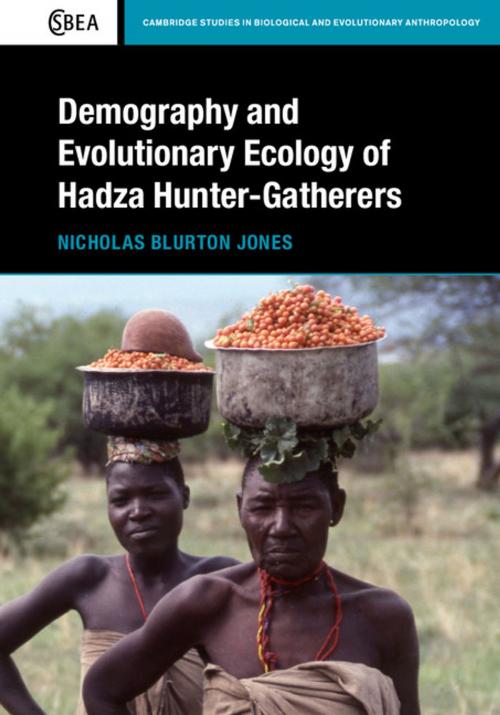Demography and Evolutionary Ecology of Hadza Hunter-Gatherers
Nonfiction, Social & Cultural Studies, Social Science, Anthropology, Science & Nature, Science| Author: | Nicholas Blurton Jones | ISBN: | 9781316423615 |
| Publisher: | Cambridge University Press | Publication: | January 21, 2016 |
| Imprint: | Cambridge University Press | Language: | English |
| Author: | Nicholas Blurton Jones |
| ISBN: | 9781316423615 |
| Publisher: | Cambridge University Press |
| Publication: | January 21, 2016 |
| Imprint: | Cambridge University Press |
| Language: | English |
The Hadza, an ethnic group indigenous to northern Tanzania, are one of the few remaining hunter-gatherer populations. Archaeology shows 130,000 years of hunting and gathering in their land but Hadza are rapidly losing areas vital to their way of life. This book offers a unique opportunity to capture a disappearing lifestyle. Blurton Jones interweaves data from ecology, demography and evolutionary ecology to present a comprehensive analysis of the Hadza foragers. Discussion centres on expansion of the adaptationist perspective beyond topics customarily studied in human behavioural ecology, to interpret a wider range of anthropological concepts. Analysing behavioural aspects, with a specific focus on relationships and their wider impact on the population, this book reports the demographic consequences of different patterns of marriage and the availability of helpers such as husbands, children, and grandmothers. Essential for researchers and graduate students alike, this book will challenge preconceptions of human sociobiology.
The Hadza, an ethnic group indigenous to northern Tanzania, are one of the few remaining hunter-gatherer populations. Archaeology shows 130,000 years of hunting and gathering in their land but Hadza are rapidly losing areas vital to their way of life. This book offers a unique opportunity to capture a disappearing lifestyle. Blurton Jones interweaves data from ecology, demography and evolutionary ecology to present a comprehensive analysis of the Hadza foragers. Discussion centres on expansion of the adaptationist perspective beyond topics customarily studied in human behavioural ecology, to interpret a wider range of anthropological concepts. Analysing behavioural aspects, with a specific focus on relationships and their wider impact on the population, this book reports the demographic consequences of different patterns of marriage and the availability of helpers such as husbands, children, and grandmothers. Essential for researchers and graduate students alike, this book will challenge preconceptions of human sociobiology.















